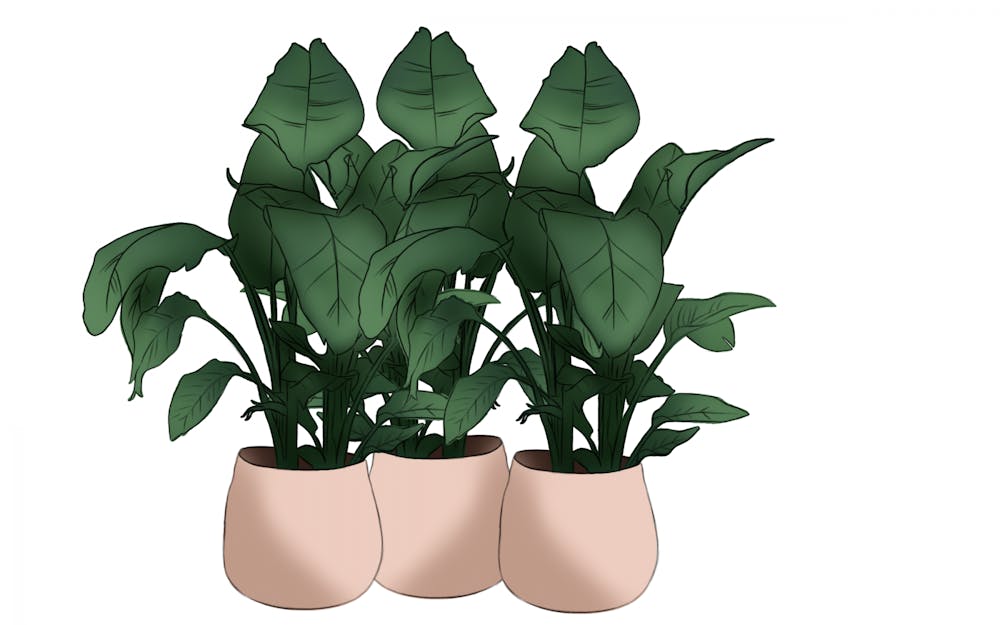Feelings of loneliness and boredom may plague your days during the COVID-19 pandemic. Seeing the same four walls and following the same routine can be exhausting. One thing that can add some sunshine and excitement to your life is a houseplant.
According to Treehugger, a site dedicated to the environmentally conscious, houseplants should be seen as a necessity because of the health benefits they offer, including: assisting in breathing, helping deter illness, cleansing the surrounding air, boosting the healing process and helping you concentrate on work.
According to Texas A&M Extension, tasks performed under the calming influence of nature are performed at a higher quality and with greater accuracy, giving you better results.
When considering whether to purchase a houseplant, first you should consider how much care the plant will need. To assist you through this journey, here are some tips on how to care for your leafy friend.
Pick a plant based on you
There are many options of houseplants out there. Your job is to determine which one fits your lifestyle. Some plants require more work than others. Amounts of water, sunlight and grooming can vary based on the plant. When purchasing one, there are usually tags on them that describe the plant and what they require.
Here is a list of 10 types of houseplants from Better Homes and Gardens.
Give it Space and Sunlight
Depending on the species of your plant, it may require more space and sunlight than your average plant. Space allows your plant to grow and get a decent amount of airflow and sunlight in your home. Some plants require more sunlight than others, so you shouldn’t place your plant under a table or in the closet. You have to understand your plant and what it needs to grow.
Learn When to Water
Most plant pots come with drainage holes. These holes release excess water in the pot. If your drainage hole is overflowing then you may be overwatering your plant.
In order to tell if your plant is thirsty, you should touch the soil. According to NBC, if your soil is too wet and smells then you have over watered. If your soil is bone dry, your plant needs some water.
NBC also suggests not going more than two weeks without watering your plant. It is important to watch how your plant responds to each season. Some seasons such as Summer and Spring make plants thirstier than others. Plants require less water in the Fall and Winter.
When a plant’s leaves start to droop, that means that it may need more water, according to Britannica.
Talk to your plant and watch it grow
Although it sounds silly, talking to your plant can help it grow. Plants respond to low levels of vibrations rather than what you say.
Mild vibrations promote plant growth while harsher vibrations do the opposite. These mild vibrations can improve communication and photosynthesis within the plant. According to The Guardian, plants react favourably to low levels of vibrations, around 115-250hz being ideal.
If you are looking to purchase a houseplant, make sure you do your research first. Plants need tender love and care just like other living things.






